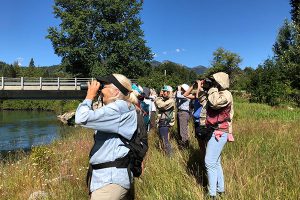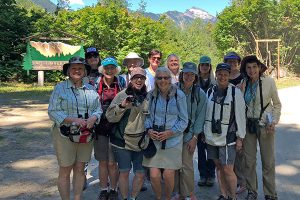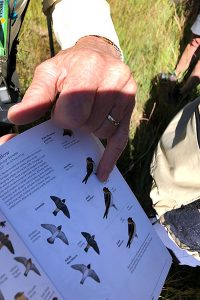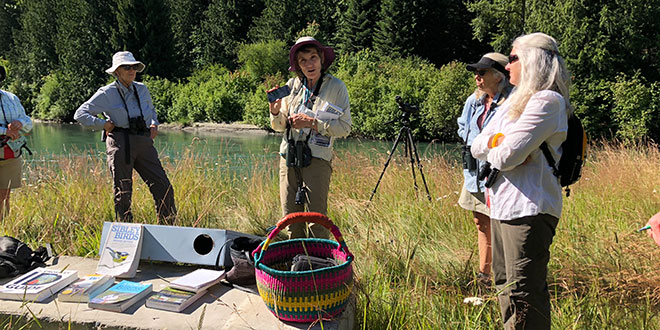
Bird watching, also known as birding, is a pastime that has continued to grow in popularity in North America. As a retailer, you have the opportunity to serve customers interested in the hobby, providing innovative products, educational information and connecting likeminded people through events.
In Plain, Washington, home to Plain Hardware, interested customers can find all of the products and information they could need to dive into the backyard birding hobby. Last summer, the store even hosted an event with Susan Ballinger, a biologist, naturalist and educator from the area. Ballinger took event attendees on a day trip to learn about birds and how to identify them in the field.
Hardware Retailing spoke to Ballinger to learn more about the event. She also shared her insights as an expert about what retailers should do to attract both casual backyard birders and more serious bird enthusiasts like herself.
Bird Watching Event Brings Birders Together
Ballinger is the expert instructor for the Wenatchee Naturalist program, which is a course offered through Wenatchee Valley College Continuing Education. Kate Tollefson, marketing manager for Plain Hardware, was a former student of the Wenatchee Naturalist program, so she invited Ballinger to lead an event through the store.
During the event, attendees toured a few nearby areas considered hotspots for bird viewing. Ballinger shared insights on bird watching and helped identify birds seen during the day.
“I was happy to help my former student Kate out by leading this bird watching event,” Ballinger says. “It was a great way for me to volunteer my time as a conservationist, introducing people interested in this hobby. Plus, it gave attendees a chance to learn about my course as well.”

While Ballinger says not every retailer may have a devoted biologist, naturalist and instructor like herself in the community, connecting with a local National Audubon Society chapter would be a great place to get started.
“Whether a retailer promotes information from it’s local National Audubon Society chapter in their store or hosts an educational event, providing more knowledge from a reputable source is a great idea,” she says. “The National Audubon Society offers field trips and other educational opportunities. Partnering with a local chapter is a win-win for a retailer and the chapter at bringing interested people together to learn more about identifying and protecting birds.”
For more information on identifying birds, Ballinger recommends retailers and their customers download the free Merlin Bird ID App, which is offered by Cornell University and acts as an instant bird ID for 2,500-plus North, Central and South American birds, as well as European birds.
How to Ensure Customers Come Back
For retailers to earn Ballinger’s business in the birding niche, it’s important retailers understand the basic science-backed reasoning behind the products sold, she says.

One program that Ballinger suggests retailers look into is Project FeederWatch, which is operated by the Cornell Lab of Ornithology and Bird Studies Canada. Project FeederWatch is a winter-long survey of birds that visit feeders at backyards, nature centers, community areas and other locales in North America. The participants count birds they see from November through early April to help scientists track movements of winter bird populations.
Through the program, customers can learn more about basics behind feeding birds. For example, Project FeederWatch reports that birds can spread diseases through feeders, so it’s important certain feeders are regularly cleaned and maintained. Ballinger says if retailers take information like this, they can suggest customers buy two feeders and switch them out to clean interchangeably. This can lead to more sales but also makes sense because it has sound reasoning.
“Retailers that are able to use scientific information to help educate their customers on backyard bird products will be able to keep people coming back, because they are able to prove their knowledgeable in the niche,” Ballinger says.
 Hardware Retailing The Industry's Source for Insights and Information
Hardware Retailing The Industry's Source for Insights and Information







